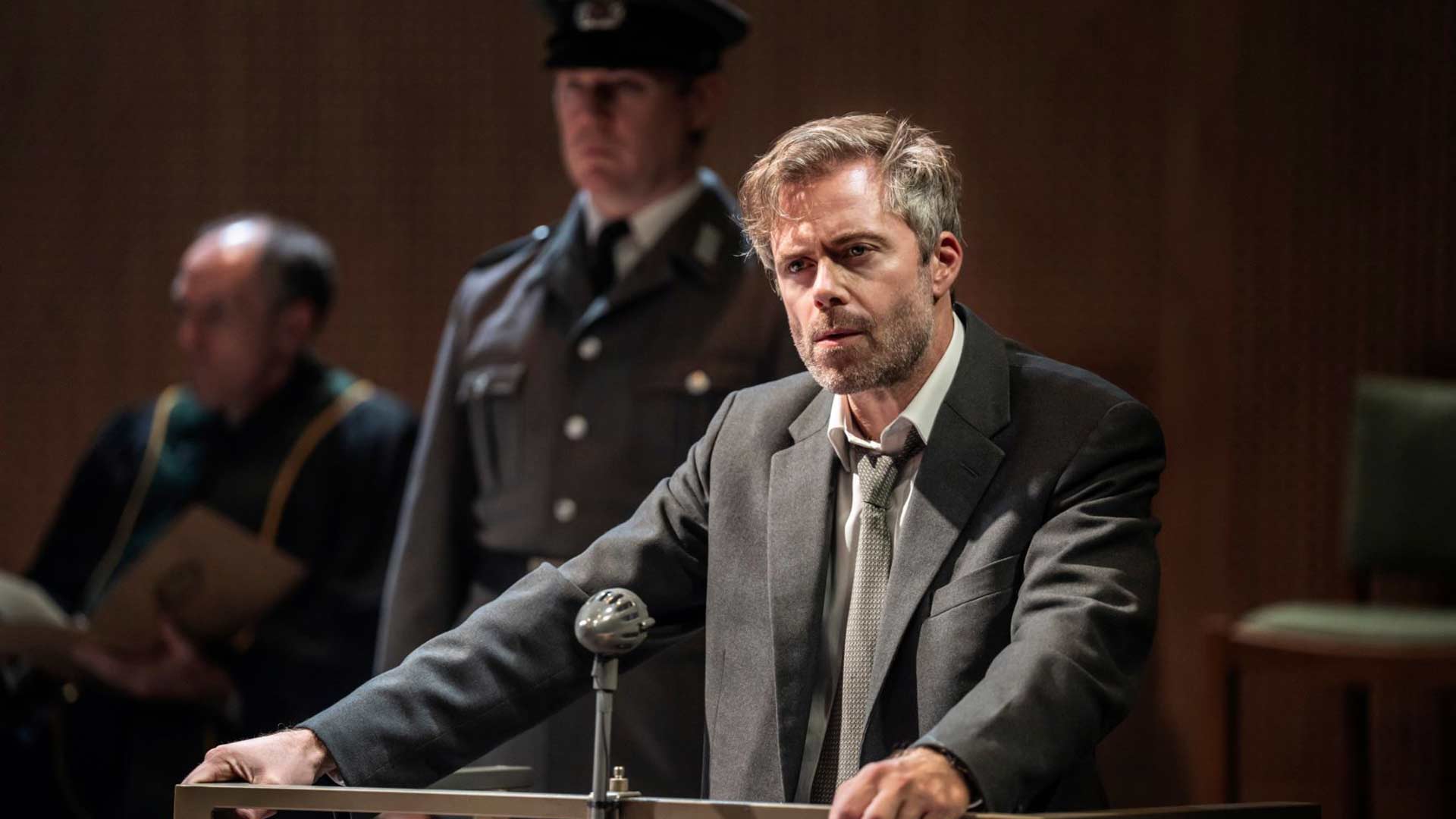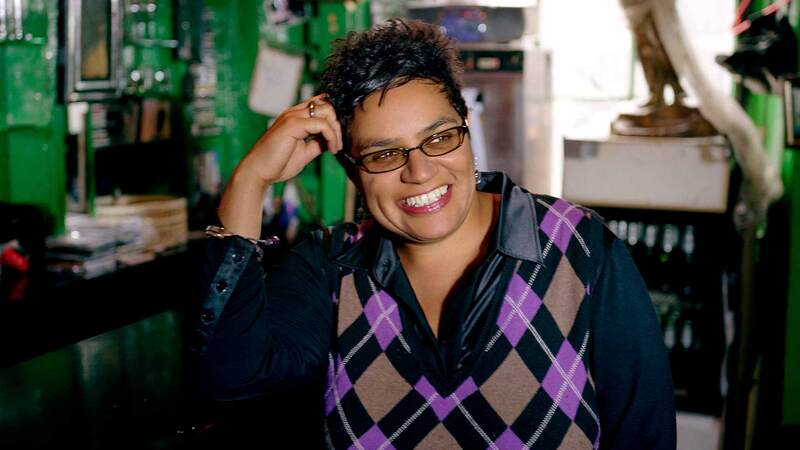You are viewing your 1 free article this month. Login to read more articles.
Spy fiction on stage
Will Chichester Festival Theatre’s new John le Carré adaptation lead to a spate of theatrical thrillers?
While the novels of John le Carré are regularly adapted for the small and large screen—Tinker Tailor Soldier Spy was the basis for both a 1979 TV show and a starry 2011 film, the 2005 adaptation of The Constant Gardener netted Rachel Weisz an Oscar, and there’s a second season of "The Night Manager" in the works—they have never been adapted for the stage. Until now.
The current production of le Carré’s 1963 espionage classic The Spy Who Came in from the Cold at Chichester’s Minerva Theatre is a first. The novel has been adapted for the stage by playwright David Eldridge, whose previous works include a superbly tense adaptation of Thomas Vinterberg’s film "Festen" and recent relationship dramas "Beginning" and "Middle" at the National Theatre (the first two parts of a trilogy). The production has been directed by Jeremy Herrin, who previously helmed Julian Mitchell’s play about the Cambridge spies, "Another Country", for Chichester as well as Sam Holcroft’s knotty, dystopian "A Mirror" in the West End.
Their task was not an easy one. Set in the early 1960s, when the Cold War was at its height, le Carré’s novel is often regarded as one of the best, and certainly one of the most realistic, spy novels ever written, the world it depicts far more grounded and grimier than that of Fleming’s James Bond.
Le Carré’s fiction is both morally murky and notoriously twisty, both things that present a challenge to a dramatist. The thriller is also not a genre that can be easily adapted for the stage. In an interview with Sarah Hemming in the Financial Times, Eldridge discussed these challenges.
“In the theatre we’re sharing that present tense together,” he says. “Your mind isn’t able to rewind in quite the same way.” You can’t just flip back a couple of pages to clarify something, so the revelation of information to the audience has to be handled differently.
It sounds as if Eldridge’s approach has paid off. In her review for the Financial Times, Hemming called it “a tense, gripping adaptation”, and most of the critics seem to be in agreement. Eldridge, she says, “fillets the novel, reframing its moral issues for the stage and drawing us into [protagonist Alec] Leamas’ head as his sense of self begins to unravel”.
Le Carré’s fiction is both morally murky and notoriously twisty, both things that present a challenge to a dramatist.
Mark Lawson, writing in the Guardian, concurs. “The narrative compression is elegant, pages becoming single lines, and the timeline jumbled to increase tension about whether some events are Leamas’ imaginings, nightmares or false memories.” According to Dave Fargnoli writing in the Stage, Eldridge “invests his version with the same lingering melancholy and brittle dialogue that audiences will recognise from his pensive domestic dramas ’Beginning’ and ’Middle’.” Only Fiona Mountford, writing in the I, “wonders whether those who haven’t read it will be lightly bewildered at times".
Rory Keenan’s performance of Leamas has also come in for praise. “He is superb as a man that has witnessed too much and has wrestled his conscience one too many times,” writes Gareth Carr for WhatsOnStage. The task of playing George Smiley—a relatively minor presence in the novel but a larger one in le Carré’s wider body of work—falls to John Ramm, who spends much of the time, as the Times reports in its slightly more muted but still positive review, “watching at all times from upstage on high”.
It’s not as if the stage has been entirely free from spy stories. Alongside Mitchell’s "Another Country", Alan Bennett’s "Single Spies" also focuses on the Cambridge spy ring. More recently, "Operation Mincemeat" created an unlikely cult musical out of a real-life story of wartime naval subterfuge so outlandish that it also inspired two movies, while Lucy Prebble’s "A Very Expensive Poison", based on the book by journalist Luke Harding, told the story of former Russian Federal Security Service agent Alexander Litvinenko’s poisoning by Putin’s government in 2006. In fact, it was an incidence of Russian poisoning on UK soil that in part informed the adaptation of The Spy Who Came in from the Cold in the first place, with Eldridge keen to connect the Cold War world of le Carré with the realities of contemporary intelligence.
Given the popularity of Mick Herron’s Slow Horses books and the excellent Apple TV adaptation, starring Gary Oldman—himself a one-time Smiley—as the flatulent Jackson Lamb, and the fact that the le Carré estate is clearly open to the idea of stage adaptation, one wonders if we won’t see more spy fiction on stage in the future.
The Spy Who Came in from the Cold is at Chichester Festival Theatre from 23 August to 21st September.

















